What Happens to Your Body When You Exercise Right After a Meal
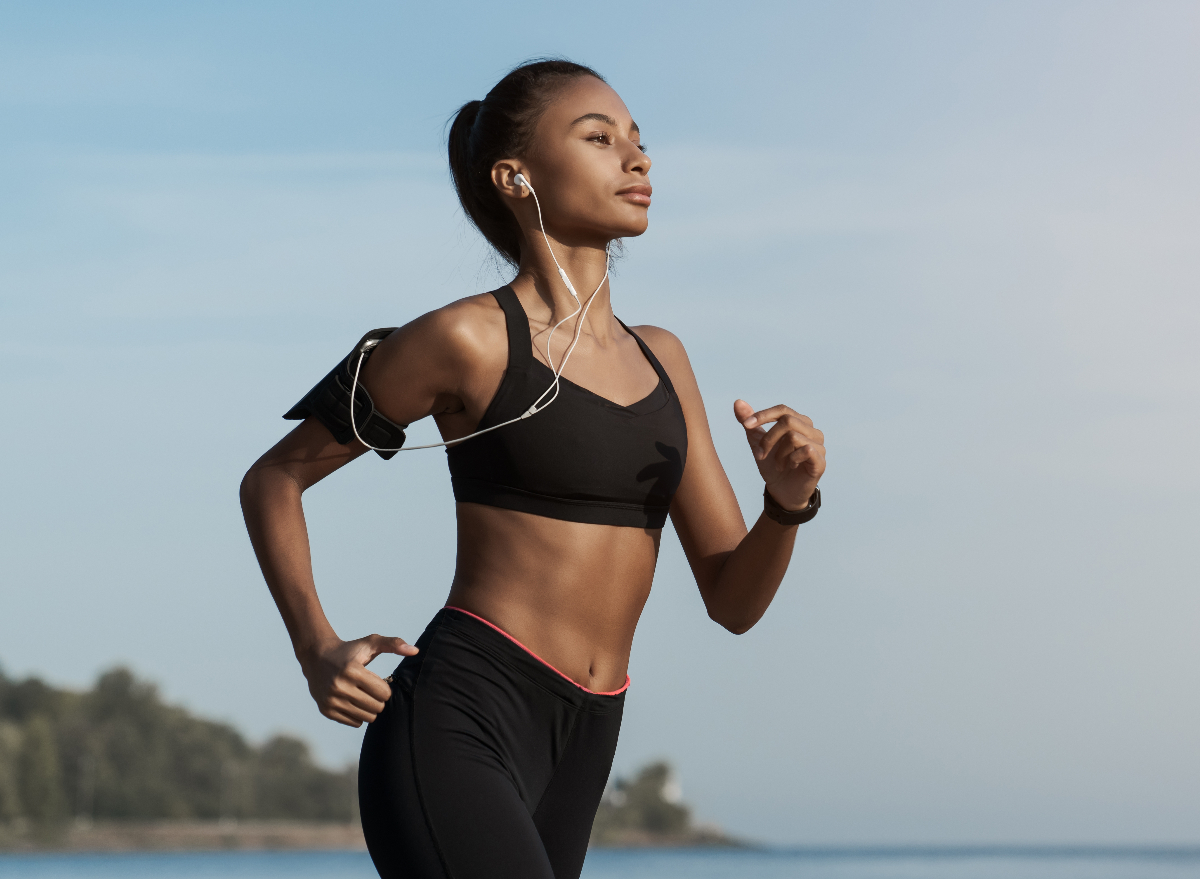
It's no secret that diet and exercise go hand in hand. What you eat can determine whether you have a fantastic workout or feel like you've been hit by a dump truck. While it's essential to choose the right foods to fuel your exercise routine, when you eat them also plays a crucial role in your ability to perform and recover from a workout. However, knowing what to eat and when is more nuanced and complex than you might suspect. That's why we chatted with a certified personal trainer and a registered dietitian to get a full rundown on what happens to your body when you exercise after eating.
Experts debate whether or not to work out in a fasted state (on an empty stomach). Research shows that fasted exercise can offer many health benefits, especially early in the morning. It can kickstart your metabolism into high gear and help torch calories more efficiently while improving blood sugar control. Conversely, other studies have found that eating high-quality carbohydrates and protein-rich foods before and after exercise is crucial for optimal performance, muscle growth, and recovery.
However, deciding what to eat and when will depend heavily on the type, intensity, and duration of your training. For example, the American College of Sports Medicine (ACSM) recommends that moderate exercise of up to one hour requires five to seven grams of carbs per kilogram of body weight daily (g/kg/day), and high-intensity training requires six to 10 g/kg/day. Endurance athletes and highly active individuals may need eight to 12 g/kg/day.
To help optimize your performance and get the most out of your training, keep reading to learn about what happens to your body when you exercise after eating. (And when you're done, find out which popular foods are proven to destroy your workout.)
You may get an upset stomach.
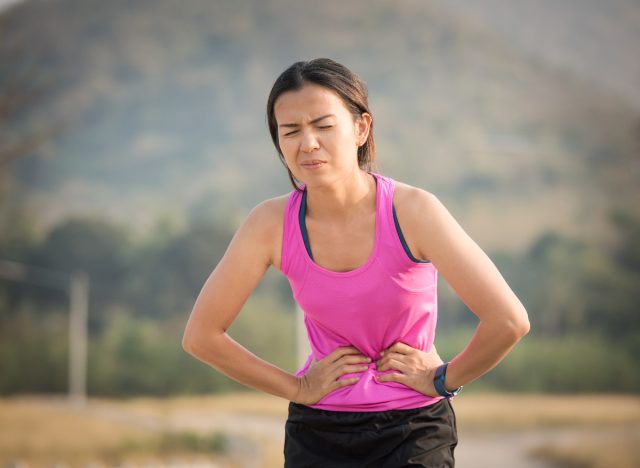
Whether hopping on the treadmill or crushing a HIIT session, jumping straight into a workout after a meal may wreak havoc on your gut. "When you exercise too soon after eating, especially if you've eaten a meal that's high in fiber or fat, you could end up with stomach pains and nausea," says Kelsey Lorencz, RDN, a registered dietitian at Graciously Nourished. "Foods high in fat and fiber take longer to digest than simple carbohydrates. Instead, try eating a light snack or meal of mostly carbohydrates like a banana or half a peanut butter and jelly sandwich. Allow your body to digest at least 30 to 60 minutes before exercising."
You could enhance your performance.
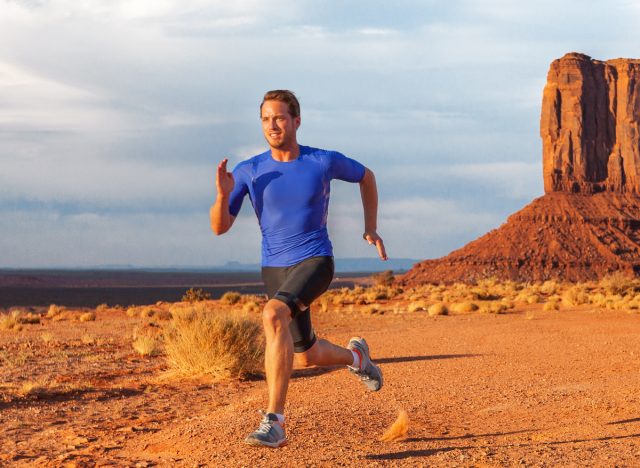
If your training involves aerobic exercise, like running, swimming, biking, or rowing, eating high-quality carbs and protein in advance can help you perform longer and harder than you would on an empty stomach.
Rachel MacPherson, CPT, an ACE-certified personal trainer with Garage Gym Reviews, tells Eat This, Not That!, "If you're doing a high-intensity workout or one that requires strenuous effort such as heavy lifting, you'll want to wait about two hours after eating a full meal before exercising to optimize your performance. For lighter workouts, you can eat one hour before, so long as it's not a large meal or one high in fat."
You might preserve muscle mass.

You've probably heard about the importance of consuming protein after a workout for muscle growth and recovery, but eating protein before training can help preserve muscle mass and strength. For example, a study published in Nutrients found that consuming 25 grams of whey protein before exercise led to greater muscle growth than a placebo. "While eating protein after workouts can help repair and grow muscle mass, eating protein before exercise could also help," states Lorencz.
Stick to carbs and protein-based meals before workouts to avoid nausea.
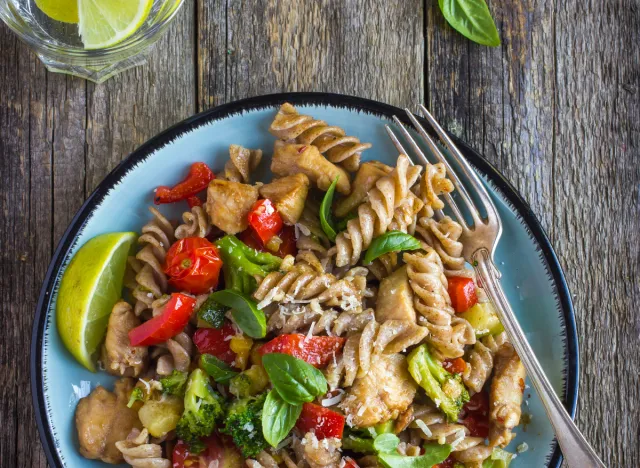
Relying on high-fat or fiber-rich foods to fuel your workouts could cause abdominal problems and negatively impact performance. "If you're hungry before a workout and need to eat something, stick to higher carbs, preferably not too much fiber, and protein-based meals," advises MacPherson. "Fat and fiber are healthy, but they slow digestion, leading to potential discomfort and nausea during workouts. In extreme cases with high-fat meals and high-intensity workouts such as HIIT or CrossFit, you could potentially vomit."
Focus on protein and carbs after training.
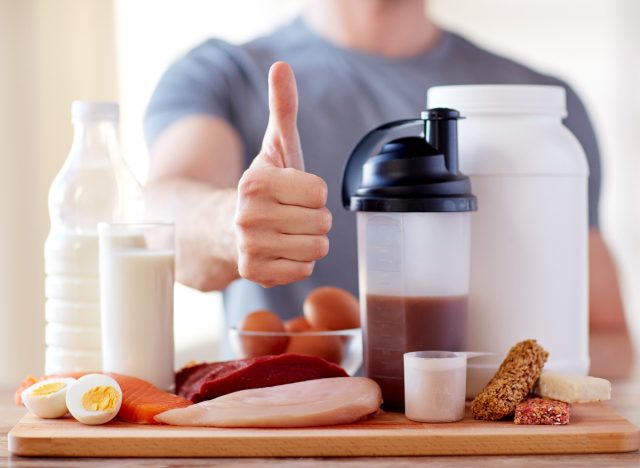
The best way to refuel after a training session is with high-quality protein and carbs. "After your workout, you'll need plenty of protein to build muscle, as protein is the building block of all tissues. Carbohydrates are also essential for muscle growth. Carbs fuel your activity and stimulate insulin, an anabolic hormone that builds muscle," explains MacPherson. "Ideally, aim for 25 to 40 grams of protein and 50 to 100 grams of carbs. The amount will depend on your total calorie intake, which is calculated based on your body weight, muscle mass, and activity level."








